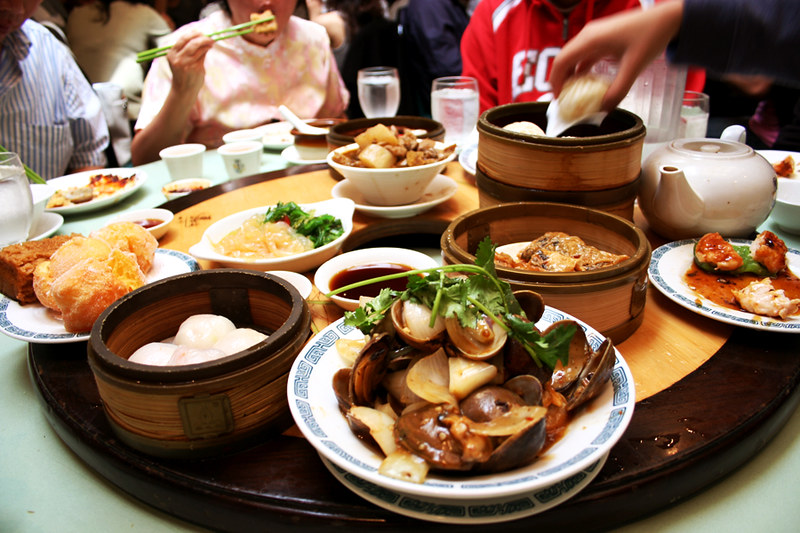20 Pro Pieces Of Advice To China Culinary Hotspots
Wiki Article
Top 10 Tips On Regional Specialties When Shopping In China
1. Research Before you GoTip - Learn what each place is famous for. For example, Suzhou for silk, Jingdezhen for porcelain, and Tibet for Thangka painting.Pro tip: Organize your shopping efforts to avoid the time wasting.Con: A good understanding and preparation of the regional highlights is essential.
2. Shop Local to ensure authenticityTo ensure authenticity and quality To ensure authenticity and quality, buy products directly from the original point.Pros: Reduces the risk that copyright products could be sold and also supports local artists.Con: Needs to travel to areas in rural areas or other less well-known tourist destinations.
3. Take a look at the Artists' Workshops.Pick small workshops or hubs for artisanal over generic shops.Pro The software lets you know more about the art and purchase directly from artists.Con: Products made by hand can be expensive and difficult to negotiate.
4. Be aware of cultural meanings.It is possible to learn about the historical history behind such objects as jade carvings, calligraphy scrolls or jade scrolls.Pro: Increases the value of your purchases, and increases the value of your purchases.Con: Might take time to fully grasp the cultural details.
5. Be sure to check the qualityVerify the quality of the embroidery, ceramics, and tea to ensure that they meet your standards.Pros: It's going to protect you from disappointment since you'll get exactly what spend.Pro: It requires some knowledge or experience to locate top-quality products.
6. Beware of products that are mass-producedTIP: Find unique handmade items instead of mass-produced replicas.Pro: You can take home an original and valuable memento.Con True craftsmanship is usually more expensive and difficult to come by.
7. Compare PricesTip: Comparing prices of the same special item across multiple shops and stalls is a great idea.Pro: It helps you identify affordable prices and avoid being overcharged.Con: Time-consuming, particularly in large markets.
8. Teas from trusted suppliersTip To visit regions such as Hangzhou or Fujian Go to trusted tea shops for Longjing (Dragon Well) or Tieguanyin teas.Pro: Assures premium quality and authentic.Cons: It may be difficult for those who are new to tea to assess the quality of tea.
9. Local Customs Learn about themTip: Some sellers may want to encourage or even require you to bargain.It adds a nice cultural aspect for your shopping.A misunderstood understanding of customs can lead to awkward situations.
10. Make sure you pack your bags carefullyIt is essential to think about the method of transporting bulky or fragile regional specialties like silk or ceramics home.Pro: Your items will arrive in pristine condition and unharmed.Cons: Added logistical challenges and the possibility of shipping cost.
Pros of Shopping for Regional SpecialtiesUnique Souvenirs.Cultural Immersion - Shopping locally for items connects you to the local culture, craftsmanship and history.Support for Artists Direct purchases from artisans support local economies.The cons of shopping regional specialtiesGenuineity Risks: Risk of buying imitations or lower-quality versions.Transporting heavy or fragile items can be challenging.Prices can be higher for goods made in the region particularly if they're handmade.The following tips can help you to shop with confidence for local specialties and ensure that the purchases you make in China will last a lifetime. Follow the recommended a taste of China best local foods for more info including culinary wonders of China, famous foods in China cities, a guide to China food scene, taste the best dishes across China, discover China culinary delights, culinary experiences across China, discover China regional dishes, Chinese food you must try, a guide to China food scene, uncover China food traditions and more.

Top 10 Tips To Visit Famous Temples And Practice Rituals
1. Tip: Every temple has their own rules and customs. Remember to respect them, particularly when entering sacred spaces or participating in rituals.Pro: Shows respect for local culture and sacred spaces.Cons: Learning the rules in temples with a lot of complexity can be daunting.
2. Respect and Be quietTip: Be respectful by keeping quiet during ceremonies and at the temple. Do not laugh or speak loudly.Pros: Creates reverence and creates a tranquil atmosphere among worshippers.Cons: The silence may be uncomfortable if you're not familiar with the culture or the surroundings.
3. Dress modestlyDress modestly like long pants or skirts and stay clear of wearing clothing that is that is too visible. There are some temples that have scarves to cover the arms.Pro: Represents respect for the sacred space and to those who worship there.Cons: You may need be prepared or wear more clothing for hot days.
4. Observe the Offerings RitualTips: Wait until the others are done with their rituals and then follow the lead of the locals if you'd want to take part in an offering (such as fruits or incense).Pro: Helps you integrate and demonstrates that you are respectful of traditional ways of doing things.Cons: You might not be comfortable when you aren't sure about the ritual.
5. Do not interrupt meditation or prayerTIP: Don't disturb worshipers who are praying or meditating. Don't snap pictures or have conversations when others are practicing spirituality.Pro: Demonstrates respect for culture, and creates an environment of calm reverence.Con: Although you may be attracted by the idea of capturing events, the process could feel unsettling.
6. Lighting of IncenseTip A tip: When it comes to Chinese temples lighting incense is a crucial ritual. To show respect for gods, you may burn incense when permitted. Incense is held and then bow a little when you present it to the gods.Pro: This shows that you respect the temple tradition and actively participate in its rituals.Con: Incense may not be common to all travelers.
7. It is forbidden to touch sacred statues or objectsTip: Don't touch any sacred objects like relics or statues.Pro: Protects the sanctity of the temple and the reverence of the space.Con: It can be confusing if you are not familiar with the boundaries of temples.
8. Be aware of the Temple HierarchyTip: Different temples may have different degrees of sanctity. Avoid stepping in front of altars and sacred statues. Know the proper place to bow.Pro Maintains the respect and decorum of the space, showing that you're aware of temple practices.The hierarchy may not be always clear. It requires a lot of effort to comprehend what is acceptable.
9. Keep Offerings HumbleTips: Make sure that the presents are low-cost and in accordance with the local culture if you decide to present an offering (flowers or fruit). Gifts that are expensive and extravagant could be viewed as unappropriate.Pro: demonstrates humility and is in tune with the local culture.Cons: It is difficult to determine which kind of product is suitable without local assistance.
10. Take part In Temple Events If InvitedTip: Some temples hold events such as prayers, ceremonies or other holidays. If you are invited participate, make sure you are mindful and be respectful of the people around you.Pro: Engages you more deeply with the temple experience, and also connects you to local tradition.Con: You might feel uncomfortable or awkward If you're not familiar with the ritual.
The benefits of keeping track of ritual practices in TemplesParticipating in rituals will aid in understanding the Chinese culture and traditions.Respectful Interaction: By observing and engaging in a respectful manner and courtesy, you will build positive relationships with your neighbors and temple personnel.Personal development: Spiritual or cultural practices can be a wonderful method to enhance your life.The temple ceremonies are an excellent opportunity to make lasting memories.The negatives of keeping rituals in TemplesUnfamiliarity: Rituals may be unfamiliar for those who have never been before, leading to confusion or errors.Cultural Mistakes: If you are doing something wrong, there might be miscommunications or offences.Language barriers: You may be unable to comprehend the significance of rituals or instructions because of differences in language.Physical discomfort - Certain rituals like bowing or standing prolonged periods of time can be physically difficult.These suggestions will allow you to have a reputable and memorable experience in China's famous temples. Check out the top rated tasty delights from China for site recommendations including Chinese food culture guide, taste the best dishes across China, China flavorful food culture, a tour of China regional cuisine, culinary experiences across China, explore diverse Chinese dishes, savor the flavors of China, a culinary journey through China, China flavorful food culture, taste the best dishes across China and more.
